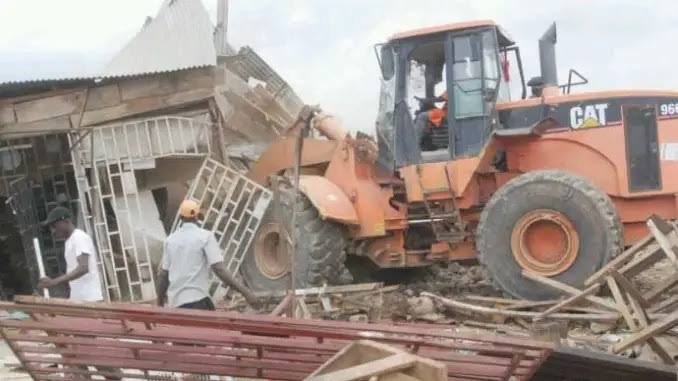The Federal Capital Territory Administration (FCTA) Taskteam on City Sanitation has removed about 3,197 shanties and illegal structures as well as crushed 1,292 commercial motorcycles in the last 14 days.
The Executive Secretary, Federal Capital Development Authority (FCDA), Mr Shehu Ahmad, said this at a news conference on Wednesday in Abuja.
Ahmad said the removal was to ensure safety and security of FCT residents as well as maintain cleanliness and ensure that residents lived without any threat.
” In particular, a total of 123 illegal structures was removed at Katampe Extension and Guzape Districts and total of 3,074 shanties were removed and cleared at Durumi I, II, III, Monkey Village, Dagba, the Illegal IDP Camp at Durumi District and under some bridges in the Federal Capital City (FCC).
” Also, a total of 1,292 commercial motorcycles were arrested, impounded and crushed to the public glare in various Districts where their operations were banned in line with the Courts forfeiture order obtained,” he said.
Ahmad said the Task Team mobilised all necessary tools (human and material) and commenced the removal of such identified nuisances which culminated into the following successes recorded from Dec. 9 to Dec. 22.
He said that the FCTA had observed with great concern increasing in illegal developments in some parts of the FCC, flagrant disrespect to the ban on the operation of Commercial Motorcycles and proliferation of shanties and illegal settlement in the guise of Internally Displaced Persons (IDPs) camps.
He said that the most affected districts were: Guzape, Katampe Extension and Lugbe Airport Road, while areas with shanties in the guise of IDPs included Durumi, Wasa and Kuchi Goro.
” Areas with disturbing activities of Commercial Motorcycle operation include and not limited to Airport Road, Durumi, Kubwa, Asokoro Extension and Guzape Districts.
“Such concerns no doubt exacerbate security challenges, affect the aesthetic of the city as well as contravene the approved Master Plan of the City which invariably create bottlenecks in the management of the city,” he said.









